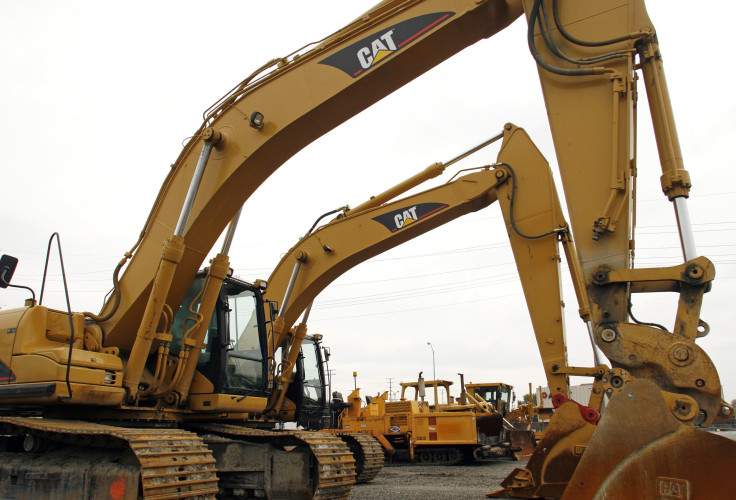Mafia, McCarthy And Multinationals: The Senate Subcommittee Behind The Upcoming Caterpillar Inquiry

A week from Tuesday, Caterpillar execs will stand in front of the U.S. Senate’s Permanent Subcommittee on Investigations, which is looking into America’s largest multinationals and how they file their taxes.
“The subcommittee will continue its examination of the structures and methods employed by multinational corporations to allocate income outside of the United States and how such activities are affected by the Internal Revenue Code and related regulations,” reads a statement from the panel announcing the investigation into Caterpillar.
The huge Peoria, Ill.- based company (NYSE:CAT) is the world’s largest construction equipment manufacturer, but is far from this panel’s biggest fish.
The Permanent Subcommittee on Investigations was created in 1948 as the War Investigating Committee to expose fraud and waste in the World War II effort and government operations, which it did until the late 1950s.
Later, their scope expanded into organized crime, national health and safety, investment fraud, labor practices, national security effectiveness and even energy pricing.
In the 1950s, the panel was headed by Sen. Joseph McCarthy, R-Wis., during his anti-Communist crusade but he became its target when took on the U.S. Army. It also probed Joseph Valachi and other mobsters of the infamous Casa Nostra. Later it investigated Enron Corp.’s collapse and the causes of the financial crisis.
These days the committee is looking into banking, corporations and finance.
The panel published a report in October detailing a survey of 27 multinational American companies with a total of $538 billion in tax-deferred foreign earnings at the end of fiscal 2010. By mid-2011, this sum exceeded $1.4 trillion.
“The survey determined that 46 percent of that $538 billion in foreign earnings – almost $250 billion – was maintained in U.S. bank accounts or invested in U.S. assets,” the report reads, citing treasuries, stocks, bonds or mutual funds.
In recent years the panel has launched inquiries into accounts of Apple Inc. (NASDAQ:AAPL), Cisco Systems Inc. (NASDAQ:CSCO), Google Inc.(NASDAQ:GOOG), and Microsoft Corp. (NASDAQ:MSFT)
The Senate investigators found that nine companies had between 75 to 100 percent of their tax-deferred foreign earnings in U.S. assets.
“As a result of the survey data, the addendum concluded that U.S. corporations were already taking advantage of the security and stability of the U.S. financial system without paying U.S. taxes on their offshore funds, and that a new repatriation tax break would raise additional tax fairness issues,” the report reads.
The committee has also made forays into international banking.
In 2009 the team’s inquiry garnered a $780 million fine from Swiss Bank UBS, after it was discovered that more than 50,000 Americans were holding $18 billion worth of hidden assets in UBS accounts.
Last February, it renewed their focus on the sector.
“The American public is angry about offshore tax abuse,” reads a statement from panel head Sen. Carl Levin., D-Mich., at the opening of a hearing that involved allegations against Credit Suisse (NYSE:CS).
“Well, it’s five years later, and the sad truth is that the era of bank secrecy is not over,” he said.
“Billions in unpaid taxes remain uncollected thanks to tax evaders’ use of bank secrecy. And we have great concern that the battle to collect those unpaid taxes on hidden offshore assets seems stalled," he added.
Next week they’ll be speaking with representatives from privately owned PriceWaterhouseCoopers, the majior accounting firm that advised Caterpillar on various tax strategies in the late 1990s and early 2000s. Both companies say they have done nothing wrong and are cooperating fully.
The Wall Street Journal reported that Daniel J. Schlicksup, a former Caterpillar tax manager, filed a lawsuit in the U.S. District Court in 2009 alleging the company avoided $2 million in taxes by shifting profits to offshore affiliates.
The company denied violating tax rules and settled with him in 2012.
“The PSI Inquiry is focusing on how our international business operations may impact the U.S. taxes paid by Caterpillar,” reads a public statement from the company, which also emphasizes that their 29 percent tax rate is “relatively high” considering how much of their business is generated abroad.
© Copyright IBTimes 2025. All rights reserved.






















